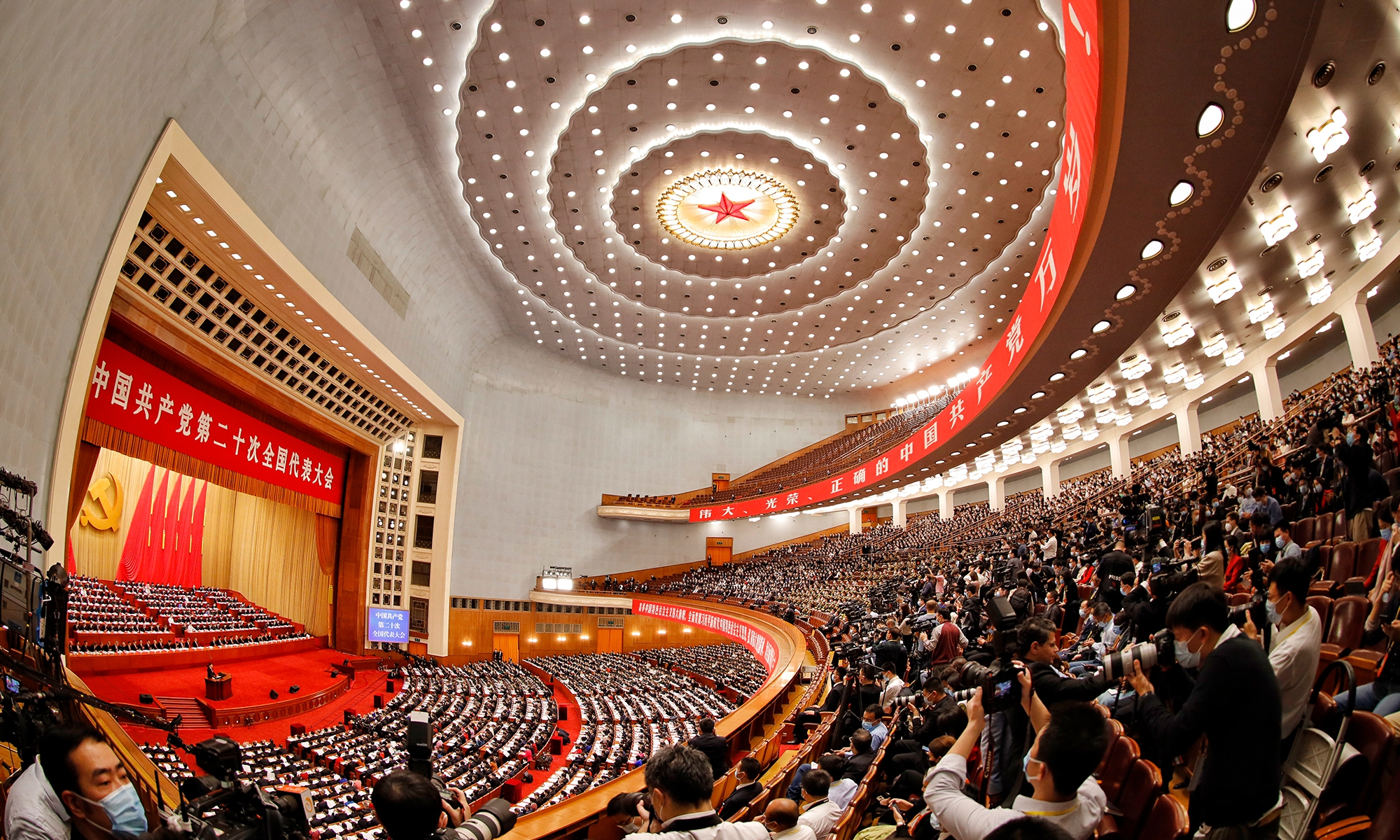At a news conference to interpret the report on the 20th National Congress of the Communist Party of China (CPC), officials reiterated that the scourge of corruption could wreck the Party if not properly addressed, and they doubled down on the importance of fighting corruption in the future, saying that a high-handed posture on the issue should not be changed, and officials should be barred from serving as proxies for interest and power groups.
The week-long 20th National Congress of the CPC concluded on Saturday in Beijing, during which corruption was a hot word that was mentioned frequently. Although the CPC has already achieved an overwhelming victory over corruption, observers said that the country will further improve the systemic and legal system for anti-corruption work, and make sure that officials don’t dare to, are unable to and have no desire to commit corruption.
The CPC Central Committee held a press conference on Monday to introduce and interpret a key report to the just-concluded 20th CPC National Congress. Speaking at the conference, Wang Jianxin, director of the Publicity Department of the Central Commission for Discipline Inspection (CCDI) of the CPC and the National Commission of Supervision, said that the report to the 20th National Congress of the CPC again alarmed the Party, showing that corruption is a cancer to the vitality and ability of the Party.
As long as the soil for corruption to grow exists, the anti-corruption fight is not over, said Wang, warning that officials should not act as proxies of interest and power groups.
At the opening session of the 20th CPC National Congress, Xi Jinping said that the CPC has achieved an overwhelming victory and fully consolidated the gains in its fight against corruption. Yet he also warned that “as long as the breeding grounds and conditions for corruption still exist, we must keep sounding the bugle and never rest, not even for a minute, in our fight against corruption.”
Fighting corruption is vital for the Party to not lose its nature and to cement its support among the people, Su Wei, a professor at the Party School of the CPC Chongqing Municipal Committee, told the Global Times. “Although we made big strides in this area, repeatedly emphasizing anti-corruption at the Congress is a strong reminder that this fight will not stop, nor slow down.”
Su noted that although corruption cases have greatly diminished over the years due to strict clampdowns and gradual improvement of the supervision system, there are still a few who venture to break the law, especially the “proxies” of interest groups.
For example, Zhou Jiangyong, a former Party chief of Hangzhou in East China’s Zhejiang Province, was expelled from the Party and public office for violating laws and discipline, colluding with capital and supporting capital in a disorderly expansion, China’s top anti-graft agency said in a statement published in January.
Su said that to stop the very few officials who are taking a bite of illegal profits, he expected more measures and policies to be rolled out to enhance the supervision of Party members.
An official from a local discipline inspection commission in Inner Mongolia Autonomous Region, who asked for anonymity, told the Global Times on Monday that he believes the country will invest more in anti-corruption in the future, especially in the cultivation of young talent and the popularization of anti-corruption education among officialdom.
China has made shining achievements in fighting corruption since the 18th National Congress of the CPC in 2012.
Sun Yeli, spokesperson for the 20th CPC National Congress, said at a press conference on October 15 that from the 18th CPC National Congress to June this year, discipline inspection commissions all over the country had investigated 4.52 million cases of corruption, during which 4.44 million people were punished.













